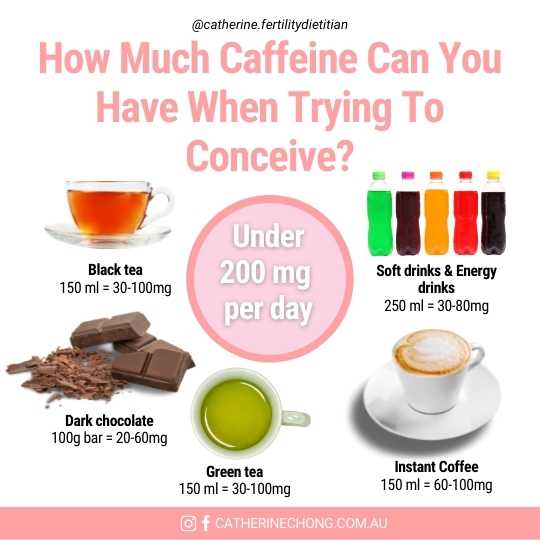Should You Be Drinking Fertility Tea to Boost Your Chances of Conception?
You’ve heard about the benefits of fertility tea in boosting your chances of getting pregnant. But do these herbal blends make a difference?
So, what exactly is fertility tea? Fertility teas are herbal blends believed to help create a more fertile environment in your body, potentially increasing the chances of conception.
Many people turn to these teas as a natural way to support reproductive health. They contain various herbs that are thought to balance hormones, improve circulation, and even reduce stress – all of which can be important when trying to conceive.
In this blog, we explore fertility tea, its commonly used ingredients, and the evidence behind its impact on conception. Read on to discover if sipping on a warm cup of fertility tea could be the supportive boost you need on your fertility journey.
1. Chasteberry Fertility Tea
Chasteberry is widely used for its hormone-balancing properties. It primarily works by influencing the pituitary gland, which regulates hormone production. This herb may help balance critical hormones such as prolactin, estrogen, and progesterone— all essential for a healthy menstrual cycle and overall hormonal health.
Chasteberry tea is particularly valued for its potential to support menstrual regularity, especially for women with irregular periods, premenstrual syndrome (PMS), or severe menstrual pain.
Recent research has also highlighted the benefits of chasteberry in enhancing sexual function. A study found that chasteberry consumption over 16 weeks significantly improved sexual dysfunction in women of reproductive age, suggesting that its hormone-regulating effects may positively influence sexual health. However, while chasteberry shows promise, more research is needed to fully understand its role in supporting fertility and conception.
As with any herbal remedy, it is crucial to consult with a qualified herbalist or health practitioner before incorporating chasteberry tea into your routine. This is especially important for those with preexisting health conditions, those trying to conceive, or individuals taking hormone-related medications.
2. Stinging Nettle Tea: How It May Support Fertility and Hormone Health
Stinging nettle tea is known for its antioxidant properties and effects on inflammation and blood glucose levels, which may indirectly support hormone regulation and reproductive health.
Research has shown that stinging nettle can positively influence hormone profiles, suggesting potential fertility benefits due to its anti-inflammatory effects. Additionally, the tea has demonstrated anti-diabetic properties, including increased insulin secretion, enhanced proliferation of pancreatic β-cells, and support for liver function — all of which are crucial for hormone balance.
While these benefits contribute to overall health, which may indirectly improve reproductive health and fertility, more research is needed to confirm stinging nettle tea’s direct impact on enhancing fertility.
As with any herbal remedy, it’s essential to approach stinging nettle tea cautiously, as it may interact with certain medications. Always consult your health practitioner or a qualified herbalist before incorporating it into your routine to ensure it is safe and suitable for your needs.
3. Green Tea: Can It Enhance Fertility and Reproductive Health?
Green tea is well-known for its wide range of health benefits, but how might it impact fertility? Rich in antioxidants, particularly catechins, green tea helps reduce oxidative stress in the body. Since oxidative stress can negatively affect both egg and sperm health, incorporating green tea into your diet may offer supportive benefits for fertility.
Several studies suggest that green tea may aid those with endometriosis, support ovulation in women with polycystic ovary syndrome (PCOS) and endometriosis and alleviate symptoms of dysmenorrhea (severe menstrual pain). In animal trials, green tea consumption improved sperm concentration and viability without negatively affecting reproductive health, highlighting its potential for both male and female fertility.

It’s essential to be mindful of green tea’s caffeine content. While it contains much less caffeine than coffee, excessive caffeine consumption may interfere with fertility.
One cup of green tea contains roughly 30-50mg of caffeine, so it’s important to enjoy it in moderation and keep your overall caffeine intake low to maximise its benefits without any drawbacks. Click here to learn more about the impact of caffeine on fertility.
4. Ginger Tea for Fertility: Can It Improve Reproductive Health Naturally?
Ginger, with its potent anti-inflammatory and antioxidant properties, is a celebrated natural remedy that could significantly improve reproductive health. Packed with flavonoids and phenolic compounds, ginger is believed to offer a range of fertility benefits.
For instance, a study suggests that ginger could be a viable alternative to address reproductive concerns such as PCOS, aid in the implantation process in the uterus, help regulate estrogen and progesterone imbalances, and reduce cortisol levels, which can impact women’s fertility. The authors concluded ginger tea could be a promising natural solution for enhancing fertility.
It’s important to note that while these findings are promising, human trials are limited, making it challenging to draw definitive conclusions on its impact on fertility.
Bottom Line:
- Fertility teas like chasteberry, stinging nettle, green tea, and ginger support hormone balance, menstrual cycle regularity, and reproductive health. However, more research is needed to confirm their direct impact on fertility.
- While these teas may offer fertility benefits, they can interact with certain medications and health conditions. Always consult a qualified herbalist or healthcare practitioner before incorporating fertility teas into your routine.
